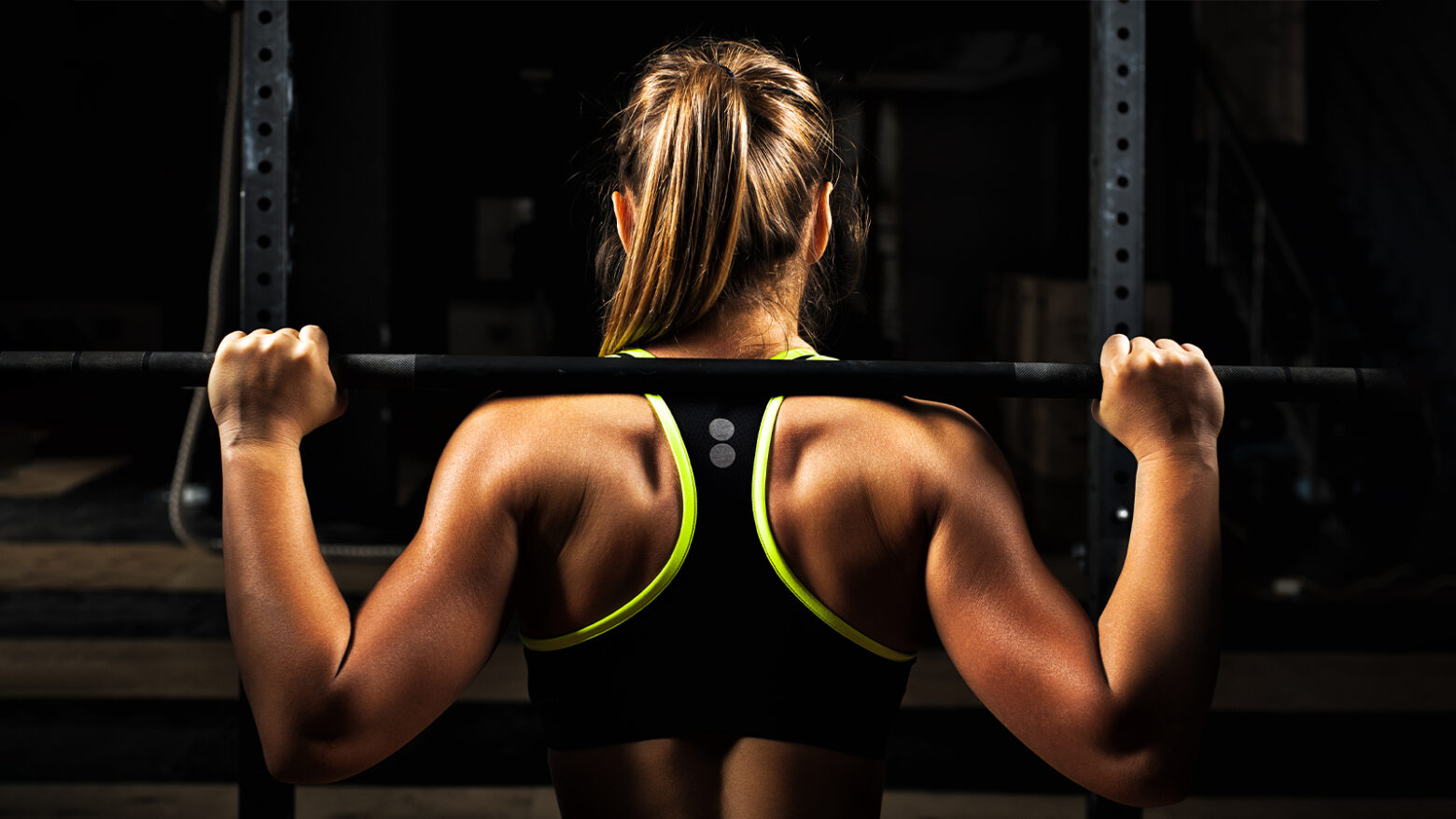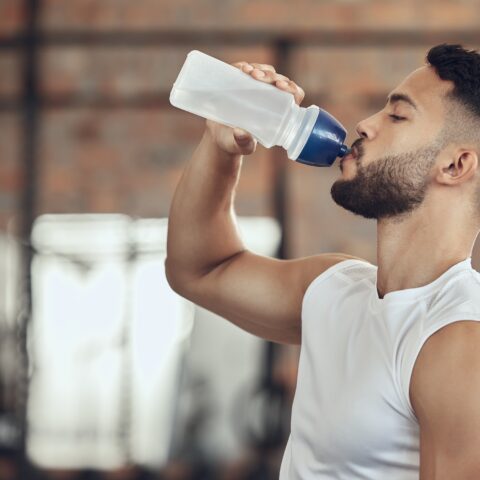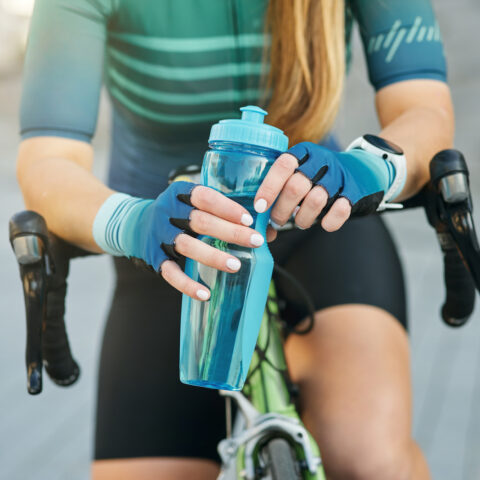Creatine for Athletic Performance and Health

When you hear the term creatine, you likely think of the tubs of muscle-building supplement typically used by younger men to increase lean muscle and improve their physique. However, creatine is a naturally occurring protein in the body, and is in fact found in great abundance in animal protein.
So, what exactly is creatine? Creatine is a protein made up of 3 amino acids––arginine, methionine and glycine––that is produced naturally in the body. It’s a high energy molecule that helps to produce ATP, the energy currency of every cell in your body. Without ATP, your cells wouldn’t have the fuel they need to survive.
Animal protein is the single best food source of creatine and the research is clear that vegetarians and vegans have consistently lower levels of creatine in the body. So, if you’re already following a Paleo approach to eating, naturally rich in animal protein, you have the ideal foundation for optimal creatine stores. Let’s take a closer look at how achieving your ideal creatine intake via a Paleo Diet can help boost your health and performance.
Performance Effects of Creatine
If you’re serious about your training and performance, topping up your creatine levels via a Paleo diet is critical for your success.
Creatine Improves Strength & Power
Achieving optimal creatine levels can improve performance by 10-15%.1 While studies typically examine creatine supplement use, the therapeutic dose can certainly be achieved following Paleo. Whether you’re a runner, cyclist or trying to improve your strength in the gym, creatine has been proven highly effective at improving single sprint velocity and vertical jump, both reliable markers of strength and power.2
Creatine Increases Lean Muscle Mass
It is well established in the scientific literature that creatine is highly effective for increasing lean muscle mass.3 Creatine provides a high energy ATP substrate to fuel explosive movements. Ask any great strength and conditioning coach and they will tell you that “all things being equal,” the stronger athlete typically wins. Achieving your optimal intake of creatine is a critical factor in promoting lean muscle gains.
Creatine Boosts High-Intensity Exercise Performance
It’s a common myth that creatine is only beneficial for strength and team sport athletes. This is simply not true. Endurance athletes regularly engage in “lactate training” or anaerobic threshold, where they purposefully push themselves beyond the aerobic training zone to improve the body’s capacity to buffer lactic acid. High levels of creatine have been show to improve cycling performance at high-intensity in both men and women.4
Creatine Improves Body Composition
For many sports, improving your body composition––decreasing fat mass and increasing lean mass––is a clear path to superior performance. Whether you’re running, cycling, or playing a team sport achieving the ideal body composition for your discipline typically improves your performance outcomes. Optimal creatine intake has been shown in athletes of multiple disciplines to improve body composition.5
Creatine and Overall Health
Creatine isn’t just important for athletic success, it also plays a key role in supporting better overall health. New research is uncovering dynamic potential benefits of creatine for boosting brain function and memory, supporting anti-aging, improving post-concussion recovery, and accelerating healing. Let’s take a closer look at these lesser known benefits.
Creatine and Brain Power
Being sharp and focused at work is a common goal for many of us. While caffeine is usually the first thing people reach for at the office, creatine has shown significant promise as a potent brain-boosting nutrient. A study from the University of Sydney examined the effects of six weeks of creatine supplementation (5g per day) on memory and intelligence.6 The researchers found creatine improved working memory, reduced mental fatigue and increased intelligence.
Creatine and Anti-Aging
Sarcopenia or loss of lean muscle is a serious condition that has its most damaging effects on the elderly. Maintaining lean muscle as you get older is one of the most important markers for your overall health and longevity.7 The typical “tea and toast” diet that many seniors fall victim to is the perfect storm for loss of muscle mass and a Paleo dietary approach (high in creatine-rich animal protein) can help preserve lean muscle and support better energy and vitality as you age.
Creatine and Healing
If you’re active, athletic, or playing teams sports then you’re likely more exposed to injury-risk from contact injuries or falls. The Journal of Strength and Conditioning showed that 5g daily of creatine in people with cast-immobilized limbs preserved muscle mass, strength and endurance.8 Hit the ground running after injury by maintaining a high-protein and creatine diet during your recovery.
Creatine and Concussions
The latest research has discovered that mild traumatic brain injury (mTBI) patients had reduced levels of creatine in their prefrontal brains than placebo.9 As creatine is intricately involved in providing fuel for cells, including neurons (cells of the brain), these new findings highlight a potential use of creatine as a preventative brain support for athletes playing contact sports.
Achieving Optimal Creatine Levels with The Paleo Diet
If boosting working memory, recovering from injury or concussion, building lean muscle and improving exercise performance are a priority for you, then maximizing your creatine stores is crucial to your success. The scientific literature shows that 5g of creatine per day is the ideal dose to take advantage of performance and health benefits. A Paleo diet is easily the most practical and effective dietary strategy to achieve these levels from food alone. In contrast, vegetarians have been shown to have significantly lower levels than meat-eaters and vegans likely even lower without the consumption of eggs or dairy.10
There are two ways to replenish low creatine stores. As 50% of your body’s stores of creatine comes from your diet, increased consumption of Paleo staples like wild game meats– rabbit, venison, elk, bison, and duck –will result in higher creatine levels. Herring provides the best food source of creatine (3.0-4.5g per 1 lb.) and other great sources include beef, pork, chicken or salmon (2.0g per 1 lb.) and wild fish like tuna and cod (1.4-1.8g per 1 lb.). The remaining 50% comes from the internal body production via the essential amino acid methionine and the conditionally essential amino acids glycine and arginine, which are found in the greatest concentrations in animal proteins, whereas vegetarian proteins like beans are low in methionine
By following a Paleo approach to eating you’ll naturally include the richest food sources of creatine in your diet: wild game meat, naturally-raised beef, pork and chicken, and wild fish. Supercharge your athletic performance and upgrade your health by achieving your optimal daily dose of creatine and see for yourself how it translates to better training, performance and overall health.
References
- Kreider RB: Effects of creatine supplementation on performance and training adaptations. Mol Cell Biochem 2003, 244: 89-94.
- Skare OC, Skadberg , Wisnes AR: Creatine supplementation improves sprint performance in male sprinters. Scand J Med Sci Sports 2001,11:96-102
- Buford T, Kreider R, et al. International Society of Sports Nutrition position stand: creatine supplementation and exercise. JISSN 2007,4:6
- Tarnopolsky M, McLennan D. Creatine monohydrate supplementation enhances high-intensity exercise performance in males and females. Int J Sport Nutr Exerc Metab 2000 Dec;10(4):452-63.
- Kirksey KB, Stone MH, et al. The effects of 6 weeks of creatine mono-hydrate supplementation on performance measures and body composition in collegiate track and field athletes. J Strength Cond Res1999, 13:148-156.
- Rae C et al. Oral Oral creatine monohydrate supplementation improves brain performance: a double-blind, placebo-controlled, cross-over trial. Proc Biol Sci. 2003 Oct 22;270(1529):2147-50
- Graf C et al. Body composition and all-cause mortality in subjects older than 65 y. Am J Clin Nutr April 2015 vol. 101 no. 4 760-767.
- Johnston A, Burke D et al. Effect of creatine supplementation during cast-induced immobilization on the preservation of muscle mas, strength and endurance. J Strength Cond Res. 2009 Jan;23(1):116-20.
- Dean P, Otaduy M, et al. Monitoring long-term effects of mild traumatic brain injury with magnetic resonance spectroscopy:a pilot study. Neuroreport. 2013 Aug 21;24(12):677-81.
- Burke D, Chilibeck P, et al. Effect of creatine and weight training on muscle creatine and performance in vegetarians. Med Sci Sprts Exerc 20003;35:1946-1955.




